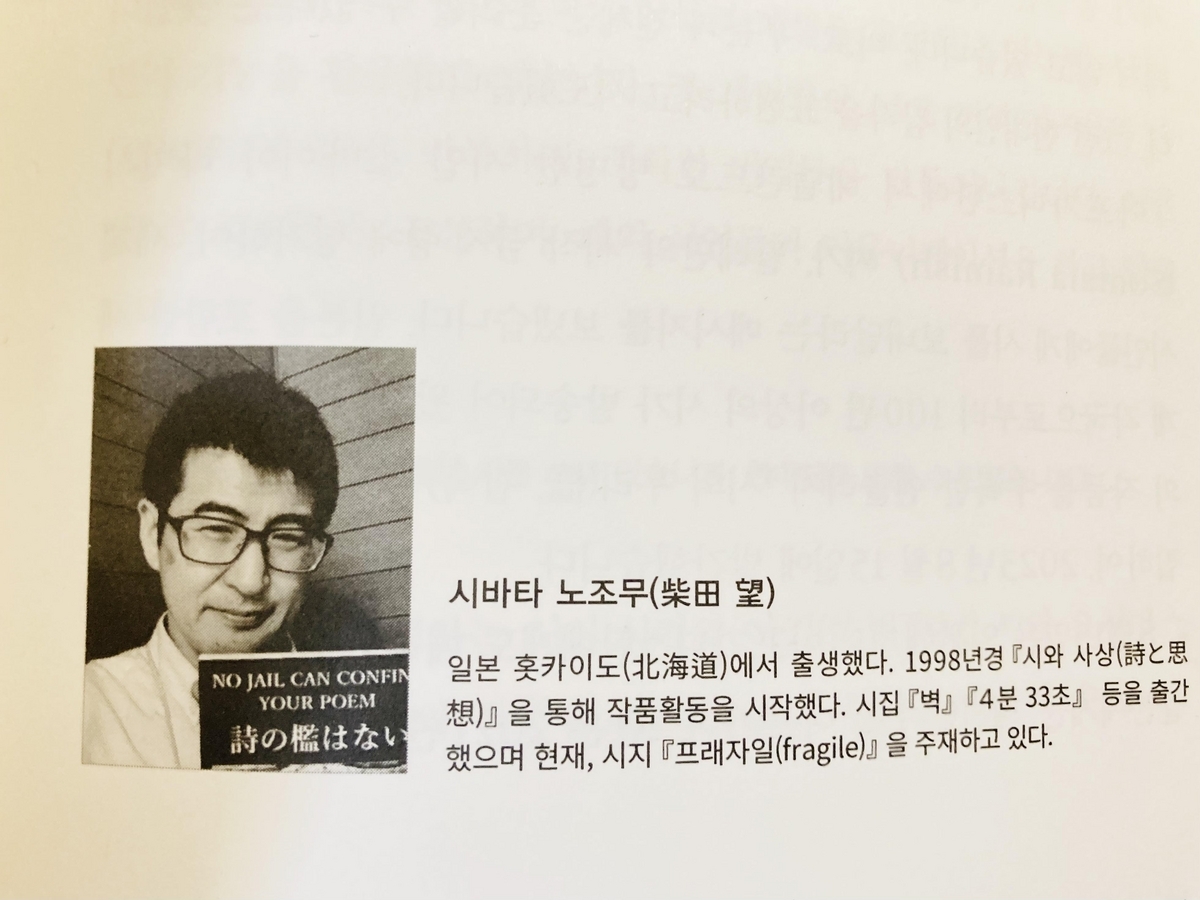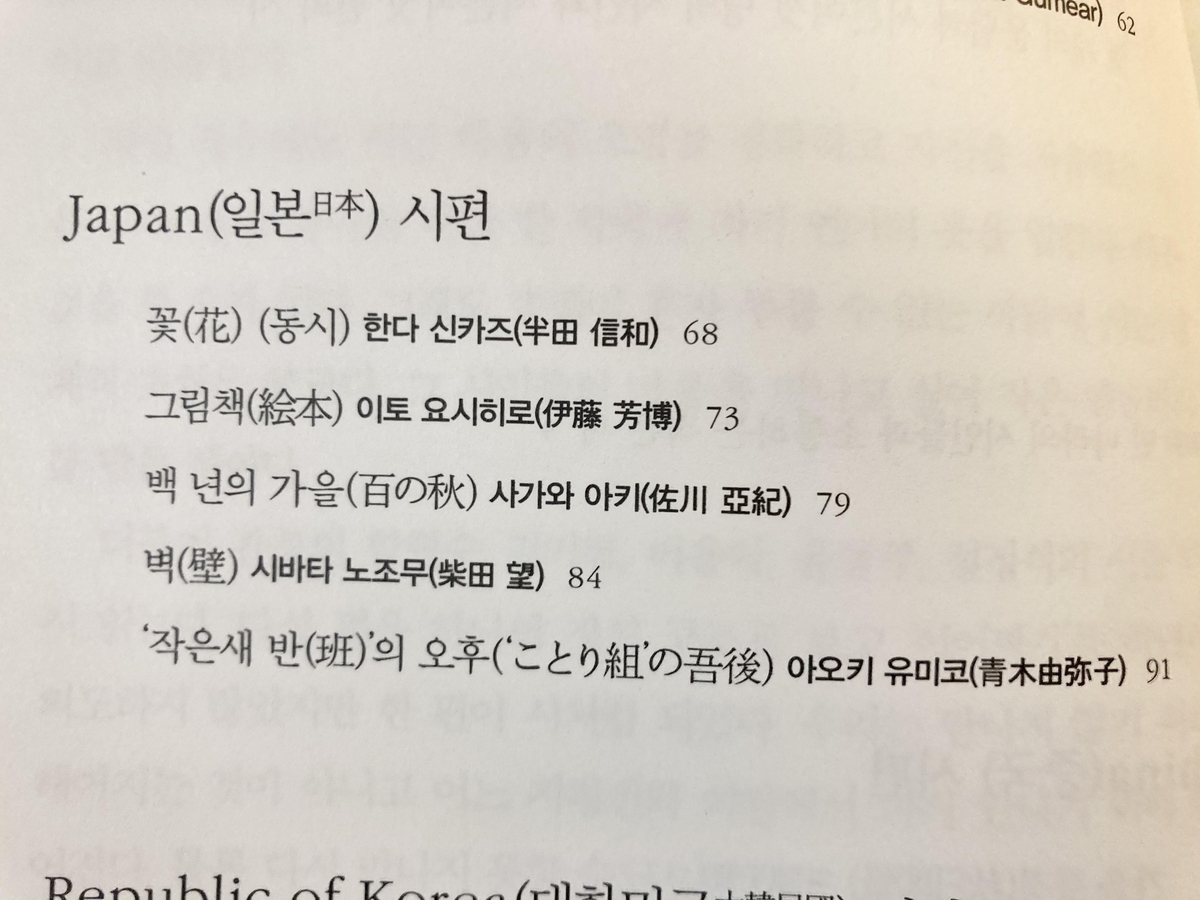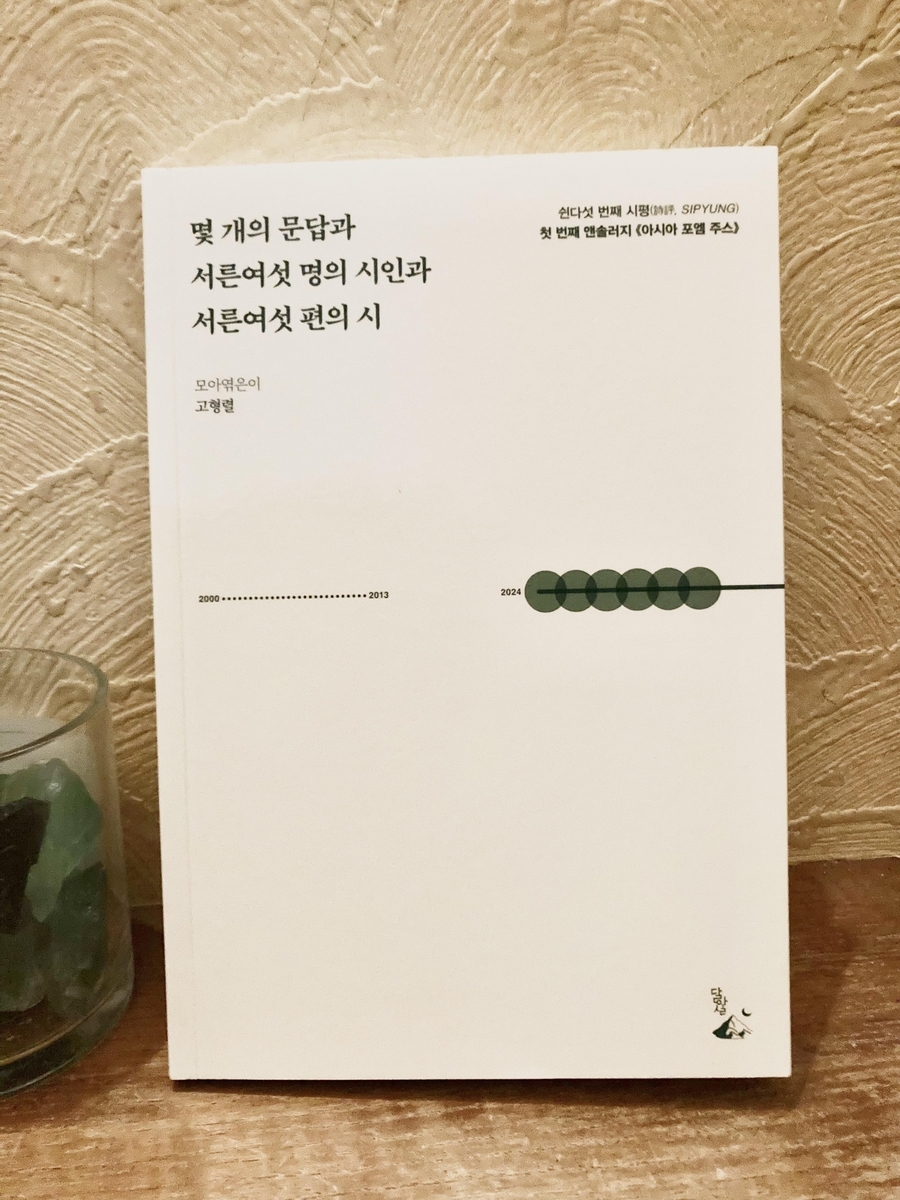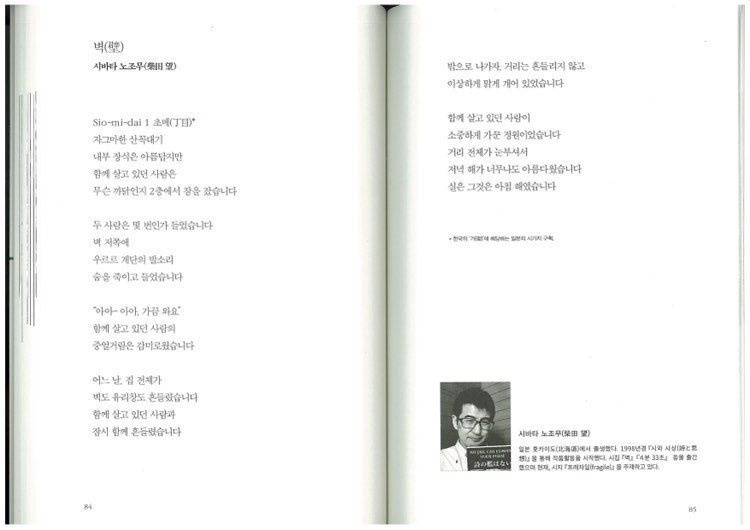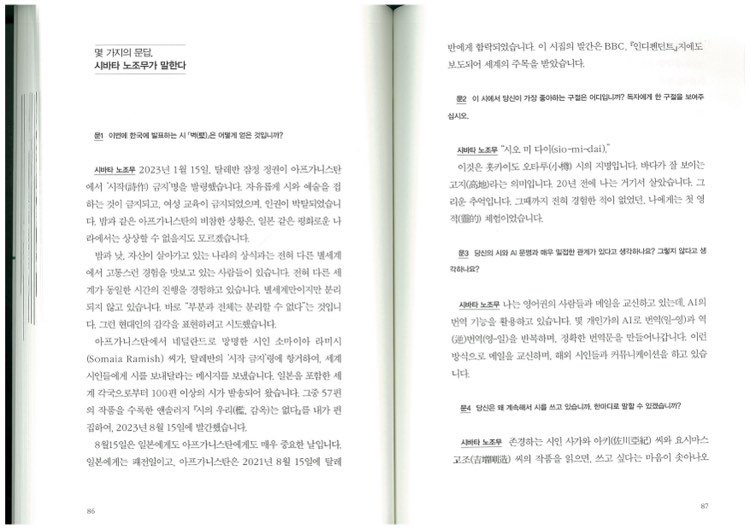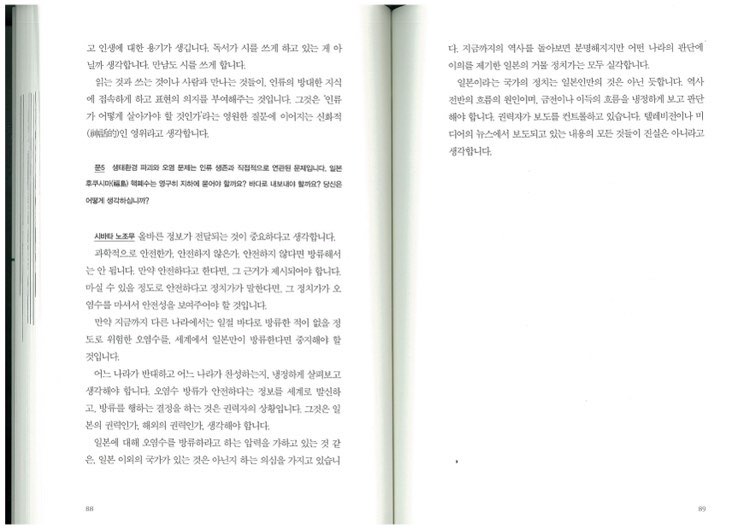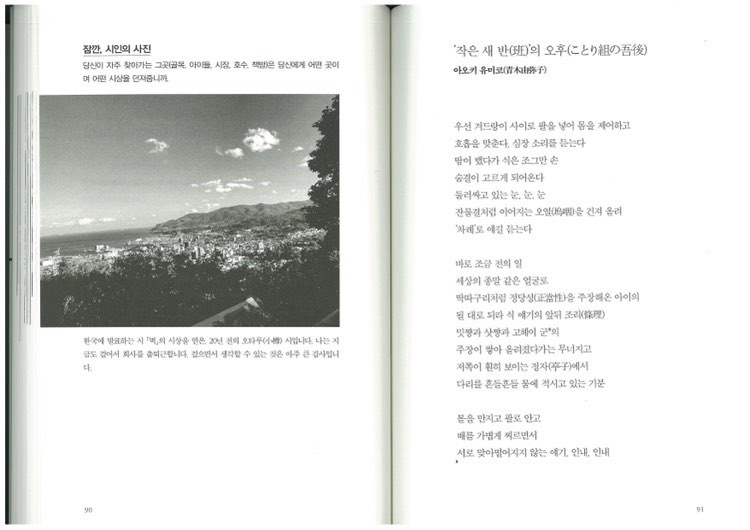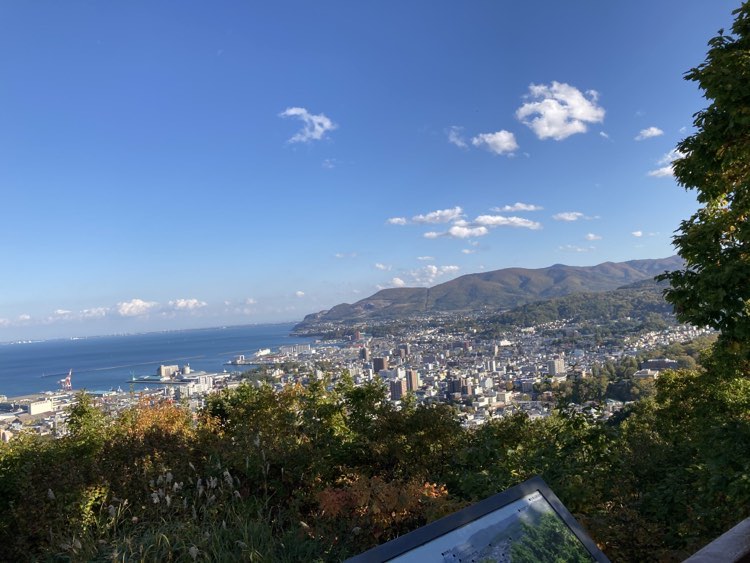■My work, photo, biography, and introduction were published in the Korean "Poetry Review" (March 10, The Poet Society of Asia, editor Ko Hyeong-ryeol). In the interview for this book, I talked about "NO JAIL CAN CONFINE YOUR POEM".
It is a collection of works by poets from China, Indonesia, Japan, Korea, Taiwan, and Vietnam. It is a very solid book with 210 pages. Aki Sagawa, Yumiko Aoki, Yoshihiro Ito, Nobukazu Handa, and Nozomu Shibata contributed from Japan, on the theme "The part and the whole cannot be separated," "different worlds experiencing the same progression of time," "separate but not separated"... about my poem "Wall, I wrote about the division and the landscape of Otaru, international solidarity in resistance to the "poetry ban" in Afghanistan, the courage of the poet SomaiaRamish, and our book NO JAIL CAN CONFINE YOUR POEM. Mr. Kwon Taek-myung translated the article into Korean. Thank you very much for this precious opportunity.
Theme: "The part and the whole cannot be separated.
Poet: Nozomu Shibata
Manuscript: 1 poem of less than 30 lines (work not yet introduced to Korea)
***
The Wall
Nozomu Shibata
sio-mi-dai 1-chome
The top of a small mountain
The interior was clean.
The person I lived with
For some reason, they slept upstairs
They listened several times
Beyond the walls
Thudding footsteps on the stairs
We listened with bated breath
"Oh... they come sometimes."
The murmur of the person we lived with
The murmurings were sweet.
One day, the whole house shook.
The walls shook and the glass shook.
With the person I lived with
and I shook together for a while.
When I went outside, the city was not shaking
It was a strange sunny day.
It was the garden
I was in a garden that he had carefully nurtured.
The whole city was dazzling.
The sunset was so beautiful.
Actually, it was a sunrise.
***
Nozomu Shibata (b. 1975, Hokkaido, Japan)
First poetic career: In 1998, he submitted his work to "Poetry and Thought" and had it published.
Affiliation: He is the leader of the poetry magazine "Fragile" in Asahikawa, Hokkaido, Japan (since 2017)
Poetry collections: "Face" (2019), "4 minutes 33 seconds" (2022), etc.
■1) When, where, and how did you write this poem?
→On January 15, 2023, the interim Taliban regime issued a "poetry ban" in Afghanistan. In Afghanistan, free access to poetry and art is forbidden, women's education is prohibited, and human rights are deprived. The miserable situation in Afghanistan, like the night, is unimaginable in a peaceful country like Japan. There are people who are experiencing hardships in a different world where night and day are completely different from the common sense of the country they live in. Completely different worlds are experiencing the same progression of time. Separate worlds, but not separated. That is exactly what it means that the part and the whole cannot be separated. I attempted to express such a modern human sensation. Somaia Ramish, a poet living in exile in the Netherlands from Afghanistan, sent a message to poets around the world asking them to send their poems in defiance of the Taliban's "poetry ban. More than 100 poems were sent from all over the world, including Japan. I edited the anthology poetry collection "No Poetry Cage" containing 57 of these poems and published it on August 15, 2023. August 15 is an important day for both Japan and Afghanistan. For Japan it was the day of their defeat, and Afghanistan fell to the Taliban on August 15, 2021. The publication of this collection of poems has been reported by the BBC and The Independent, and has attracted worldwide attention. ("NO JAIL CAN CONFINE YOUR POEM No Cage for Poetry: ~ A Poetic Protest Against Censorship and Suppression of the Arts in Afghanistan")
■2) What is your favorite part of the poem?
→The "sio-mi-dai" at the beginning of the poem is the name of a place in Otaru City. I lived there 20 years ago. It was a nostalgic experience. There was an event of my first spiritual experience, which I had never experienced at all before.
■3) Do you think your poetry has much to do with AI civilization? Or do you think it has nothing to do with it?
→I have been exchanging e-mails with people in English-speaking countries, and I make use of the AI's translation function. I use several AIs to check sentences by repeatedly translating and back-translating, making up translated sentences and communicating with them.
■4)Please tell us in one sentence why and how you continue to write poetry without giving up.
→When I read the works of Aki Sagawa, a poet I admire, or Gozo Yoshimasu, a poet I respect, I am inspired to write. They give me courage for my life. I believe that reading makes me write poetry. Encounters also give me the opportunity to write poetry. Reading and writing and meeting people connect us to the vast knowledge of humanity and give us the will to express ourselves. It is a mythical activity that seems to connect to the eternal question of how mankind should live.
■5) The issue of ecological and environmental destruction is a discourse of crisis directly connected to the survival of humankind. Which do you think is more appropriate, that the contaminated water (nuclear wastewater) from Fukushima should be buried permanently underground or that it should be discharged into the ocean?
→I think it is important that the correct information be conveyed. Is it scientifically safe or not? If it is not safe, then it should not be released. If it is safe, then the evidence should be provided. If a politician says it is safe enough to drink, then that politician should drink the water to show that it is safe. If Japan is the only country in the world to discharge contaminated water that is so dangerous that no other country has ever discharged it into the ocean, then it should be stopped. We must calmly look and consider which countries are against it and which are for it.
It is for the convenience of those in power to inform the world that the discharge of contaminated water is safe, and to make the decision to discharge the water. Is it the powers that be in Japan or the powers that be overseas? Is it both? We need to look at this issue carefully and calmly. I have a suspicion that there are countries other than Japan that are pressuring Japan to release contaminated water.
Looking back at the history of Japan, it is clear that every major Japanese politician who disagreed with the decision of some foreign power has been ousted from office. It seems that the politics of the country of Japan is not only the domain of the Japanese people. It is the cause of the entire history, the flow of money and profit that must be judged dispassionately. The powers that be control the news coverage. We believe that not all of what is reported on TV or online news is true.
■6) Show us a picture of an alley (dense residential area with many children, market street, fish market) that you frequent. What thoughts and poetic ideas do you get from those alleys (pathways)?
→This photo of a town with a view of the sea is from Otaru City, Hokkaido, the setting for this poem. I lived in Otaru City for two years. The setting of my poem ("Wall") that I submitted this time is a place called Shiomidai in Otaru City, and this photo is of a place called Asahi Observatory (Tomioka 2-chome, Otaru City) where you can look down on Otaru Port and the city center below. You can see the whole historical city at a glance.
